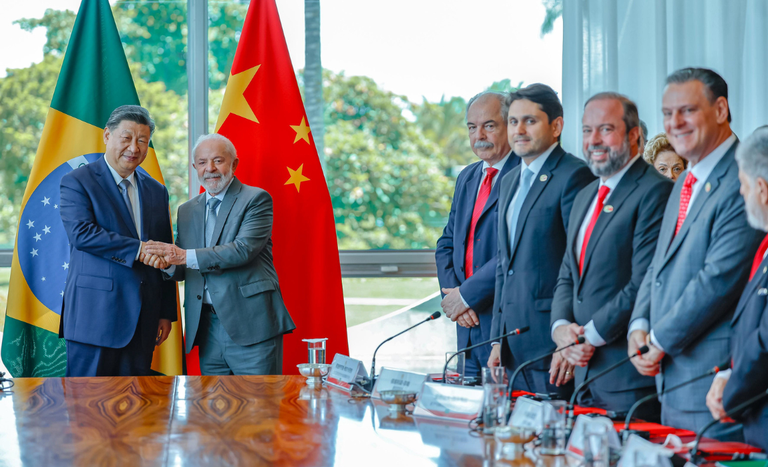Notícias
BILATERAL MEETING
Brazilian agribusiness secures four new markets in China
China, Brazil’s largest trading partner, has opened its market to four additional Brazilian agricultural products. The agreements were finalized during a bilateral meeting between Presidents Luiz Inácio Lula da Silva and Xi Jinping on Wednesday (20) in Brasília. This milestone marks Brazil’s expansion into 281 agricultural markets in 2023 alone.
Four protocols were signed between Brazil’s Ministry of Agriculture and Livestock (Mapa) and China’s General Administration of Customs (GACC). These agreements outline the phytosanitary and sanitary requirements for exporting Brazilian products to China.
The newly approved products—fresh grapes, sesame seeds, sorghum, fishmeal, fish oil, and other fish-derived proteins and fats for animal feed—will benefit producers across diverse regions of Brazil.
President Lula announced the agreements during a press conference at the Palácio da Alvorada following his meeting with President Xi Jinping.
"Agribusiness continues to play a key role in ensuring China’s food security. Since 2017, Brazil has been China’s largest food supplier," President Lula stated.
Agriculture Minister Carlos Fávaro, who attended the ceremonies accompanying China’s official visit, emphasized the importance of the strengthened diplomatic relationship between Brazil and China, which celebrates 50 years in 2024.
"Brazil has demonstrated its reliability as the largest supplier of food and renewable energy. We have the workforce, technology, and capacity to expand production sustainably, enabling us to deepen our partnerships even further," Minister Fávaro said.
According to the Secretariat of Trade and International Relations at Mapa, the trade potential for these newly approved products is estimated at $450 million annually.
“Considering broader market dynamics and Brazil’s potential, exports could surpass $500 million annually. China’s annual imports of these four products amounts to nearly $7 billion, and Brazil continues to strengthen its position as a strategic, reliable, and secure partner for China,” explained Luís Rua, Secretary of Trade and International Relations at Mapa.
TRADE INSIGHTS WITH CHINA
China is the world’s largest importer of sesame, accounting for 36.2% of global imports and spending $1.53 billion on the product in 2023. Brazil, the world’s seventh-largest sesame exporter with a 5.31% market share, is expanding its cultivation areas to meet growing demand.
Similarly, China leads in fishmeal imports, purchasing $2.9 billion in 2023. While Brazil represented only 0.79% of global fishmeal exports last year, this approval creates an opportunity for growth.
In sorghum, Brazil holds a 0.29% share of the global market. China imported $1.83 billion of the crop in 2023, primarily from the United States.
Brazil has also seen exponential growth in fresh grape exports, achieving record levels. Now entering the Chinese market, Brazilian grapes already account for 2% of global fresh grape trade. China, a significant consumer of premium grapes, imported over $480 million worth of this product in 2023.
Exports of fresh table grapes will primarily originate from Pernambuco and Bahia. To qualify, orchards, packing facilities, and cold treatment centers must comply with good agricultural practices and register with Mapa.
For fishmeal, fish oil, and other fish-derived proteins and fats used in animal feed, exporting companies are required to implement a Hazard Analysis and Critical Control Points (HACCP) system or equivalent management standards. They must also establish product recall and traceability systems, secure approval from Brazilian authorities, and register with Chinese authorities. The registration is valid for five years.
Eligible raw materials include fish (excluding marine mammals) caught in domestic or international waters, farmed fish, and by-products from fish processed for human consumption.
Press information
imprensa@agro.com.br


